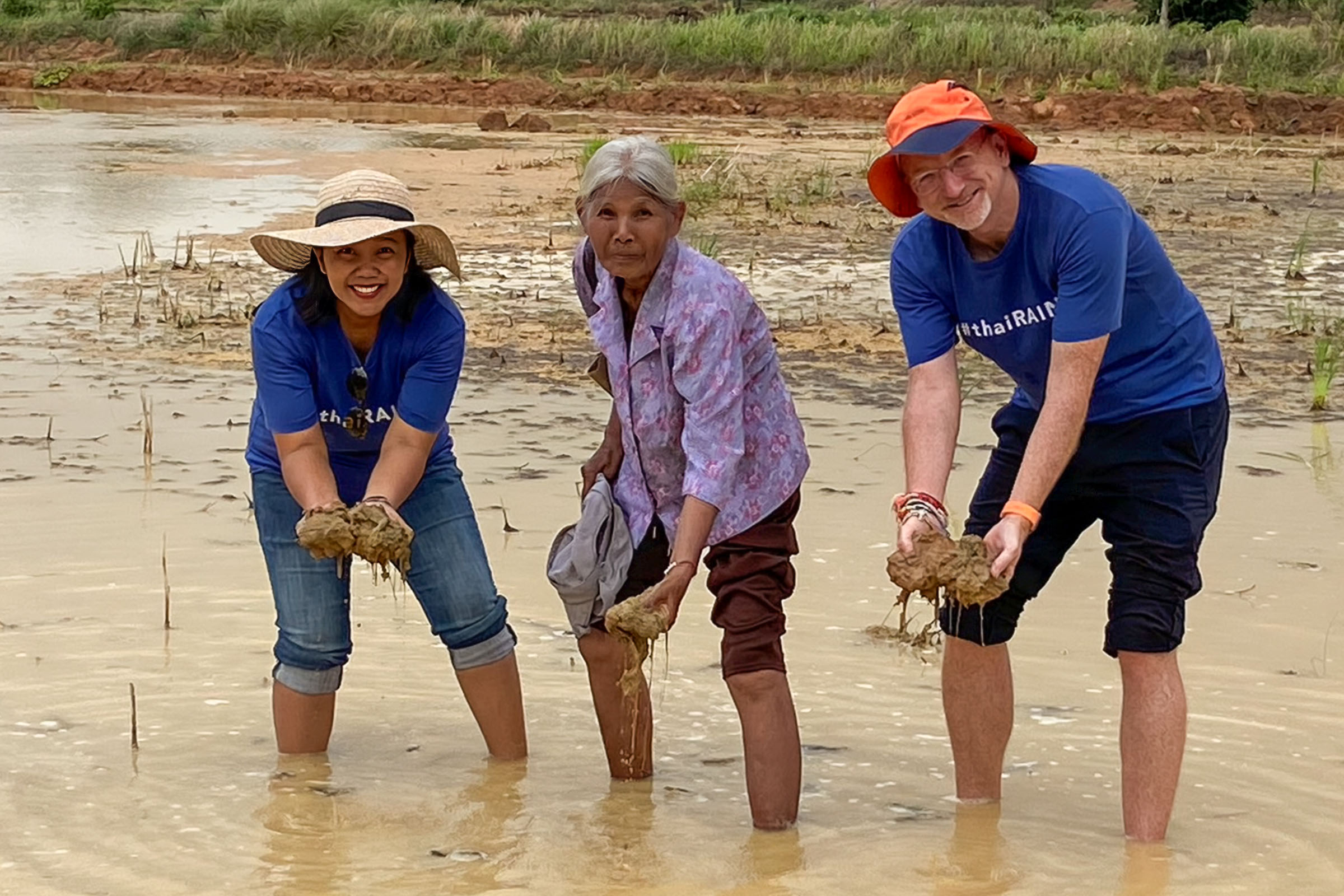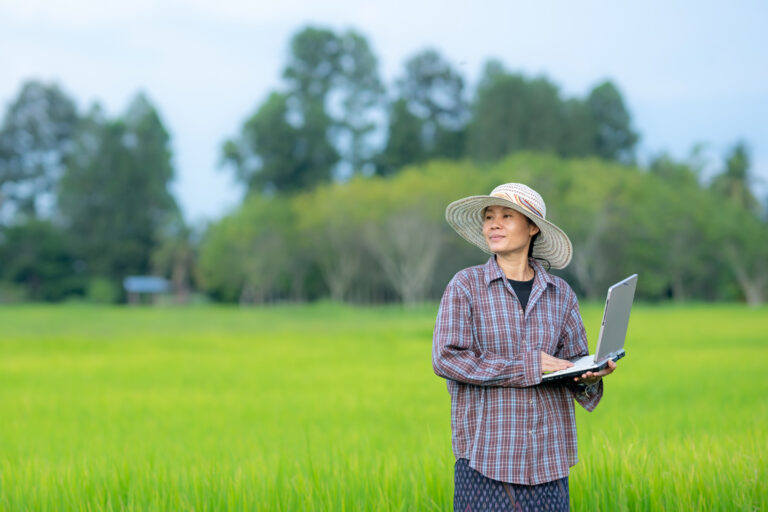
Friends of clean air: A #thaiRAIN success story
Too hard to breathe
Air pollution has topped Thailand’s environmental challenges over the past decade. According to the State of Global Air Report, toxic haze was linked to 32,200 deaths in 2019 — higher than those caused by COVID. Thailand’s average PM2.5 concentration in 2023 was 4.7 times above the World Health Organization’s air quality guideline.
Beyond transportation, industry and construction, agriculture is also a significant contributor to the air quality crisis. A 2022 study by the Thailand Environmental Institute found that rice cultivation is among the largest contributors to PM2.5, along with maize and sugar cane.
Rice farmers and air pollution
Rice farmers do burn agricultural residue, particularly in irrigated fields. Rice cultivation, especially in irrigated areas, has a 20-day window between each crop, which is too short for hard stubble to decompose naturally.
Efforts from both public and private sectors have been made to discourage burning. Local authorities even impose sanctions on farmers who burn, yet no viable alternative has been provided.
While farmers have faced enormous pressure to adapt, it’s important to find innovative solutions that address the reasons they resort to burning.
Earthbound microbes
The microbial solution is one of the technologies sourced by the USDA Thailand Regional Agriculture Innovation Network (#thaiRAIN). This technology uses a blend of bacteria capable of accelerating the decomposition of agricultural residues, cutting the decomposition time in half.
Between 2023 and early 2024, #thaiRAIN actively sought producers of microbial solutions to pilot on real farms. The goal was to demonstrate that these solutions could effectively soften stubble enough for farmers to plow their land. Test results and testimonials aimed to provide farmers with a solution they could use to reduce, if not eliminate, their burning practices.
#thaiRAIN piloted microbial solution products in two provinces. Not only did the microbes actively decompose stubble, but farmers also observed improved soil quality. The return of frogs and earthworms further confirmed the restored ecology within the pilot farms.
The business of scaling
The success of the test mentioned above initiated the next step to scale up this technology. #thaiRAIN defined a viable business model that connects this innovation with a broader movement to address the PM2.5 situation. The first step was to build sufficient momentum to generate strong interest from farmers and stakeholders in the rice value chain.
The #thaiRAIN team began presenting this solution to various stakeholders, encouraging them to become active supporters of microbial solutions as an alternative to burning in rice farming.
On October 1, 2024, #thaiRAIN led a panel discussion at a project event called: “Reduction of Air Pollution through Avoidance of Burning in Agriculture.” This high-level, invitation-only event gathered participants from the rice, maize and sugar cane value chains. Feedback from more than 250 participants frequently cited #thaiRAIN’s Rice session as “the most relevant and insightful [session], particularly for its focus on microbial solutions and practical applications for farmers.”
#thaiRAIN is confident in this AgTech, which has the potential to increase rice farmers’ productivity. Additionally, the microbial solution is attracting a wider audience of advocates and supporters who care about the environment. Long-term campaigns are in development to raise awareness and encourage a shift in behavior — from burning stubble to using this climate-smart innovation.
As to whether the ongoing campaign can be as successful as this introductory phase, the deciding factor depends not only on #thaiRAIN and the targeted rice farmers. It is this group, the friends of clean air, who will help drive the future for microbial solutions for Thailand.
Related Projects

